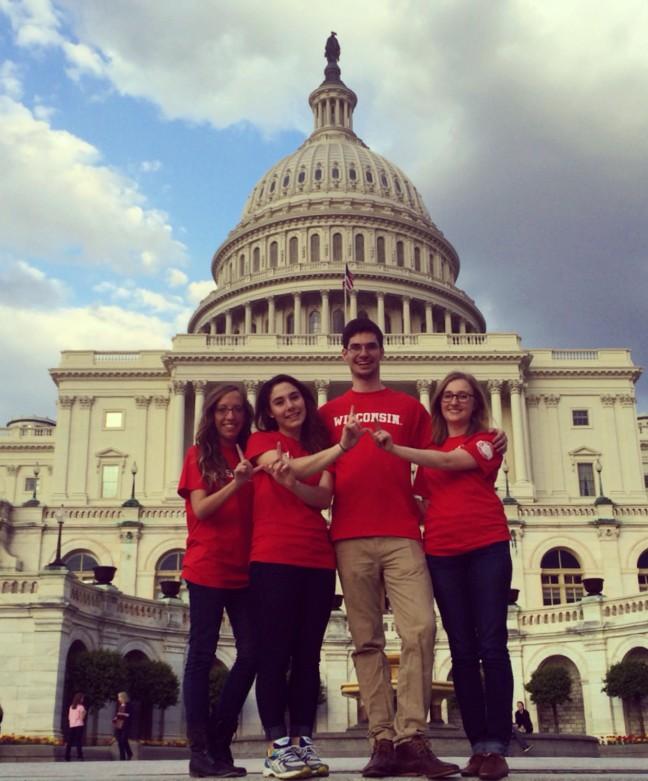This weekend a team of Badgers gave a presentation at the National Sustainable Design Expo in Washington D.C. on environmental sustainability and came away winning the $90,000 grant from the Environmental Protection Agency.
University of Wisconsin undergraduates Jenna Walsh, Emily Baumann, Katelyn Budke and Jared Ottmann won $15,000 after applying for the phase I grant in December 2012 and started putting their project called Styrocycle into action in August of last year.
They used the money for developing recycle and reuse networks for Styrofoam boxes and shipping materials on campus earlier this year. With the grant, the group began getting support for its project from researchers and biotech companies, Budke said.
Through the supervision of Andrew Markley, a post-doctorate candidate at UW, the team won the competitive grant from the EPA through its People, Prosperity and the Planet student design competition.
“We were one of the winners so we will get about $90,000 from the EPA to continue and expand our project,” Markley said.
The group did a variety of research to set up programs and investigated reuse options within the many different sizes and the qualities of the Styrofoam boxes, Markley said. With Phase I, they put out three pilots of programs with local boxing.
The goal of the team was to come back as winners of the phase II grant from Washington D.C. to continue its project and operation, Markley said before the event.
UW has more than 3,300 wet laboratories on campus and accumulates more than 1,000 boxes for Styrofoam shipping each month, so the goal of the project is to end the stream of those that were previously going to the landfill and divert that toward reuse and recycling as a secondary method, Walsh said.
The group also talked about reselling the boxes locally and the effect that has had on other campuses nationwide, Markley said.
Moving forward with the phase II funding, the group will be expanding partnership to more biotech companies, Budke said. They will also try to replicate and expand collection to other schools, she said.
Markley and Baumann said they have already formed partnerships with two other universities, Washington University at Saint Louis and the University of Illinois.
Along with the partnerships they have formed at other universities, Budke said the team has also set up 15 collection programs on campus and has part of three permissions for biotech companies who are now accepting their boxes that are being used for shipping.
The group has also helped set up a website to further its distribution and expand its project for everyone to see, Budke said.
“We also would like to expand our web platform, which can be an educational research tool for the general public. If someone would keep the box they could go on there and the website would tell them the best thing for them to do now that they have it,” Budke said. “Also, we are trying to get information to other communities that are trying to set up a program like ours.”


